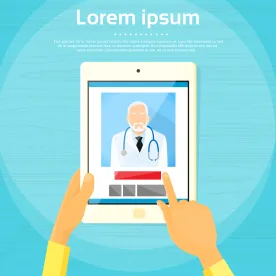Louisiana’s governor signed into law, HB 570, (the “Act”), eliminating a prior requirement that physicians practicing telemedicine maintain an office in Louisiana or contract with in-state providers. The Act also changes the telemedicine modality required for a patient encounter from “two-way video” technology to “interactive audio” (provided the modality is sufficient to meet the same standard of care as an in-person encounter). The Act requires telemedicine providers make referrals to, or arrangements for, follow-up care when necessary. The Act became effective on June 17, 2016.
 The new law comes on the heels of Louisiana’s Board of Medical Examiners’ telemedicine regulations last fall. In those rules, the Board revised its practice standards for telemedicine, the requirements for a telemedicine permit, and rules on remote prescribing of controlled substances. The regulations required telemedicine physicians to have an in-state office or an arrangement with a physician in Louisiana for follow-up care referrals. As a statute, the new law supersedes these regulations, but does state that each Louisiana state agency or professional or occupational licensing board or commission may promulgate new rules and regulations that are consistent with, but no more restrictive than, the statute itself.
The new law comes on the heels of Louisiana’s Board of Medical Examiners’ telemedicine regulations last fall. In those rules, the Board revised its practice standards for telemedicine, the requirements for a telemedicine permit, and rules on remote prescribing of controlled substances. The regulations required telemedicine physicians to have an in-state office or an arrangement with a physician in Louisiana for follow-up care referrals. As a statute, the new law supersedes these regulations, but does state that each Louisiana state agency or professional or occupational licensing board or commission may promulgate new rules and regulations that are consistent with, but no more restrictive than, the statute itself.
Telemedicine companies and healthcare providers delivering services in Louisiana should be mindful of these laws and adjust their practices and procedures accordingly. Here are highlights of the Act:
-
Telemedicine. “Telehealth” remains defined as a mode of delivering healthcare services that utilizes information and communication technologies to enable the diagnosis, consultation, treatment, education, care management, and self-management of patients at a distance from healthcare providers. Telehealth allows services to be accessed when providers are in a distant site and patients are in the originating site. Telehealth facilitates patient self-management and caregiver support for patients and includes synchronous interactions and asynchronous store and forward transfers.
-
Standard of Care. The standard of care remains the same as if the healthcare services were provided in person. A healthcare provider may utilize interactive audio without the requirement of video if, after accessing and reviewing the patient’s medical records, the provider determines he or she is able to meet the same standard of care as if the healthcare services were provided in-person.
-
Physician Licensure. A provider practicing telemedicine must hold an unrestricted license to practice medicine in Louisiana or a telemedicine special license in Louisiana.
-
Remote Prescribing. The Act did not alter existing requirements or standards for remote prescribing.
-
Disclosures. The Act did not alter existing requirements or standards for disclosures. Under current board rules, prior to providing telemedicine services, a physician must disclose to the patient: 1) the name, Louisiana medical license number and contact information of the physician, 2) the physician’s specialty or area of practice, 3) how to receive follow-up and emergency care; 4) how to obtain copies of medical records and/or ensure transmission to another medical provider; 5) how to receive care in the event of a technology or equipment failure; and 6) notification of privacy practices.
-
Informed Consent. The Act did not alter existing requirements or standards for informed consent. Under current board rules, a physician must notify a patient of the relationship between the physician and patient and the respective role of any other health care provider with respect to management of the patient and that the patient may decline to receive medical services by telemedicine at any time.
-
Patient Records. The Act added that a physician practicing telemedicine must create a medical record on each patient and make such record available to the board upon request. As before, a physician practicing telemedicine must document the telemedicine services rendered in the patient’s medical records according to the same standard as that required for non-telemedicine services. Medical records including, but not limited to, video, audio, electronic, or other records generated as a result of providing telemedicine services are considered confidential and are subject to all applicable state and federal laws and regulations relative to the privacy of health information.
-
Venue. Venue in any suit filed involving care rendered via telehealth pursuant to these laws must be instituted before the district court of the judicial district in which the patient resides or in the district court having jurisdiction in the parish where the patient was physically located during the provision of the telemedicine service. The patient is considered physically located at the originating site.





 />i
/>i

